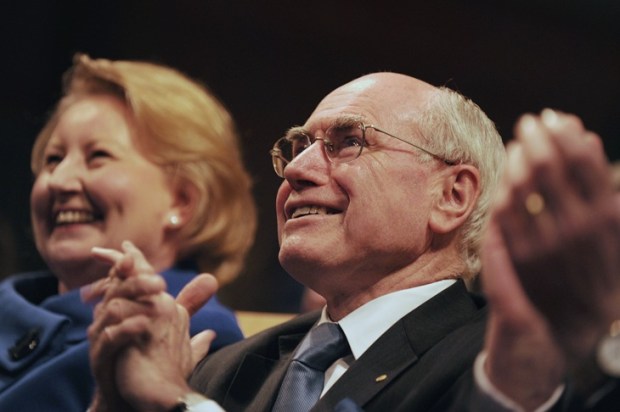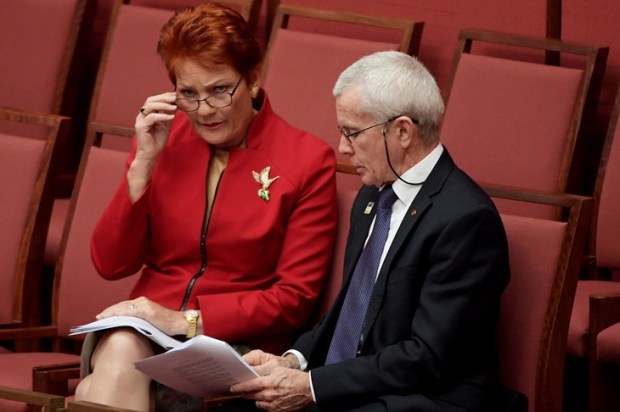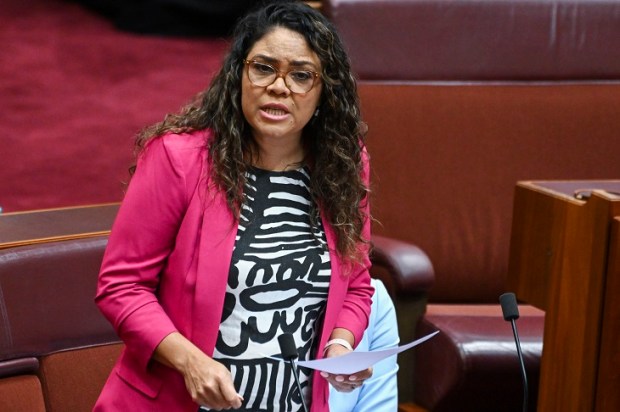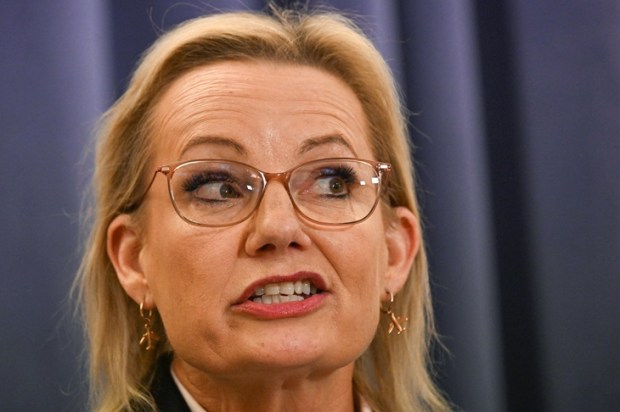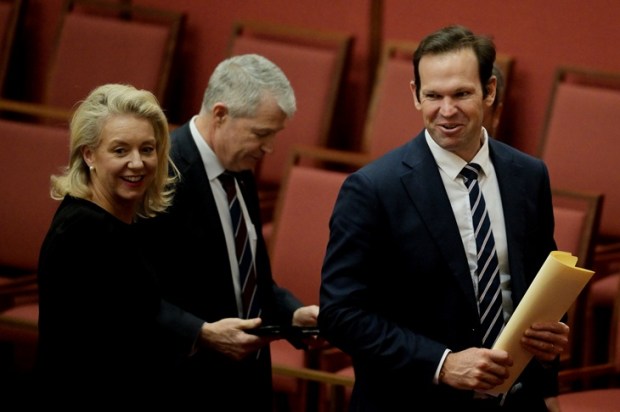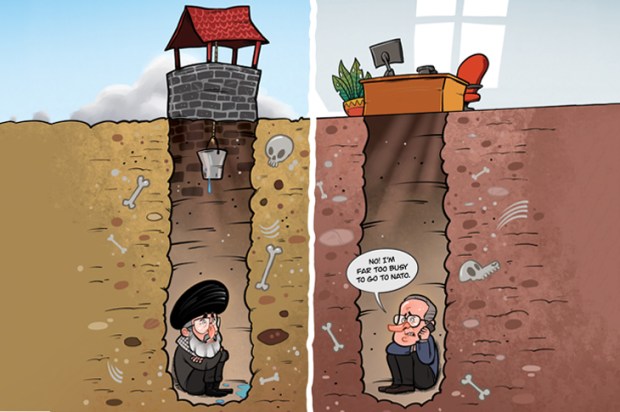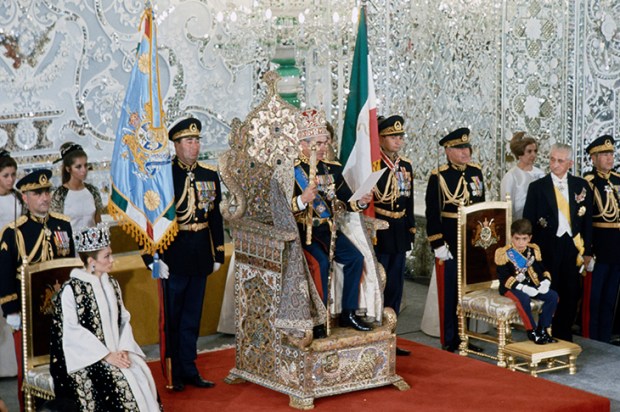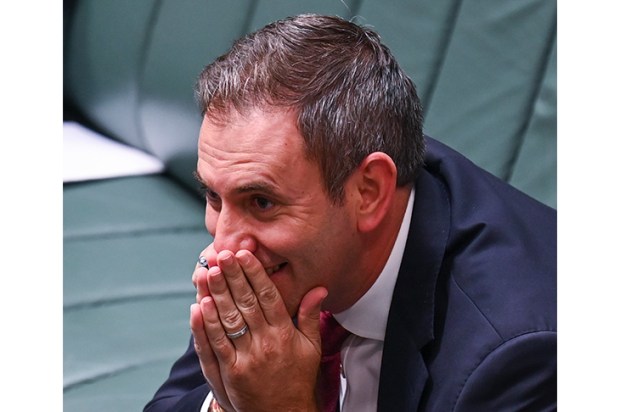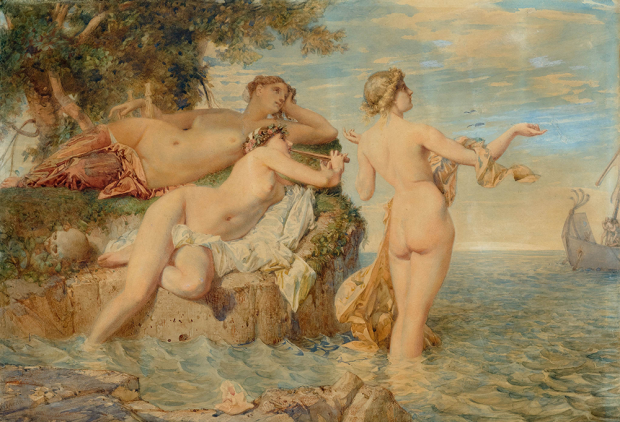This is going to sound harsh, but the Liberals require tough love or the movement and their party will die.
Sussan Ley wants to modernise the Liberal Party while the right faction wants to salvage it from electoral oblivion.
These competing goals often involve public statements from MPs and Senators that invoke the names of Tony Abbott, John Howard and – particularly from the wets who imagine themselves as the inheritors of the Forgotten People – Robert Menzies.
This article is not a debate about the merits of each former Prime Minister or a tug-of-war for the legacy of Menzies.
Instead, I present a warning to the Liberals that young people – their critical audience – either don’t know or don’t care about these men.
Read that again, because it needs to be properly understood.
I am in my mid-thirties and I was a child in the Howard and Costello years. All I remember is that Howard saved the middle class from the horrific waking nightmare of Paul Keating. His relevance to the challenges of today are negligible. This is because his key foe, the conquering of whom made Howard great, is no longer a threat. Sticky-taping him onto the digital age diminishes him, especially when he criticises Trump – a conservative figure young voters know, relate to, and understand.
Gen Z, the group swiftly becoming the most influential crowd of voters spamming social media with their demands, were not even born. Mention Howard to them and they will look at you blankly. Talk about 18 per cent interest rates and they’ll shrug. They do not understand what that world felt like. Saying things such as, ‘Ooooh no, Chalmers will bring back Keating’s interest rates!’ is a threat for which they have no frame of reference.
Tony Abbott might be younger, but he is not much better as a saviour figure. My generation was too busy worrying about high school and university to properly relate to his leadership. All we really heard were headlines about backstabbing and stopping the boats. Gen Z, well … they were toddlers. They have no nostalgia for Abbott.
As for the migrant vote, most are new arrivals and have no idea who these people are. If they did know, they probably wouldn’t like them. The argument for conservative politics has to be made afresh to these people, and firmly enough to break through their predominately socialist upbringing. Most migrants are pretty comfy with sprawling, all-powerful governments.
Finally, when it comes to Menzies, there is perhaps no conservative figure more abused by their own party. The wets are, as we speak, trying to repurpose Menzies as a modern centrist to validate their hostile takeover of the party. The truth is, the centre for Menzies would be far-far-far to the right of One Nation.
Can you imagine Menzies’ confusion over the definition of a woman?
How Menzies would feel about the wet embrace of mass migration and chastising of Christian values?
As for Woke, Menzies would see the wet surrender to social justice as the deepest possible betrayal of the party he created. He hated communism, and Woke reeks of it.
Menzies is being used as a faction weapon. What he cannot be, especially in an era where Australian political history is almost non-existent among voters, is a means to attract new people to the party.
Rather, Menzies is a concrete slab, whose legacy of ideas provide a firm base to build a new party on top of, one that is attractive and lucrative to Australians whose political memory begins in the late 90s.
The problem of courting the young is far larger than commentators on mainstream networks and papers seem to understand.
This could be because they are older, with children in their 40s, who simply lack the perspective of these voting generations. Perhaps that is why they are stuck in this idea that if they just resurrect the glory days and the names of their heroes, all will be well.
This is not what the history of Europe suggests. Not at all.
If they spent any time on TikTok or Youtube listening to what young people say, instead of ridiculing their content, they might realise that there are patterns of resistance forming and communities looking for a political party to rescue them from the hell of being raised during Peak Woke.
I have been wanting to make this observation for a while, particularly when murmurers of Tony Abbott being brought back were floated around (Alex Antic would be a much better fit for this era).
Then I came across an interview discussing the same topic on Damian Coory’s The Otherside.
He was interviewing Freya Leach, the Director of the Centre for Youth Policy at the Menzies Research Centre. She was also the President of the University of Sydney Conservative Club and a former Liberal Party Candidate.
Being a young conservative woman in the critical age range the modern Liberal Party wants, she was asked how voters can be drawn back to the party.
‘Well, I think we have to start by articulating what our values are,’ she replied.
‘There is this tendency in the Liberal Party to trade off the legacy of Howard and Costello and even Menzies, to an extent, but the reality is I was barely born during the Howard-Costello years. A lot of migrants weren’t in the country and we can’t, 25 years later, keep claiming we’re the better economic managers, we’re the party for small business, we’re the party for lower taxes, for less debt, if our record does not stack up to that.’
You can see why, upon hearing her speak, I decided to finish this article.
Leach is correct when she goes on to add that if people do not know what the party stands for ‘Labor is then able to launch all the scare campaigns they want’.
Her advice is, ‘We really have to get back to basics, articulating from a philosophical level what the Liberal Party stands for, and why it’s actually good. Engage in the battle of ideas. That’s what Menzies did when he was establishing the Liberal Party.’
‘The Forgotten People broadcasts,’ she adds, ‘laid out a vision for Australia.’
‘They diagnosed the problems of the day and he laid out a really clear philosophical understanding of the country and where we should be going. And that’s what we have to get back to.’
Although, I am not sure I agree with her point later on that ‘truth’ will be the deciding factor that brings young people back to the Liberals and away from the clutches of the left.
There are two reasons for this. The first is, the Liberals seem incapable of upholding truthful principles or engaging in the necessary culture wars. And secondly, it is usually poverty that snaps a nation out of a bad political system. At that point, the anger and desperation does not leave much room for calm and rational change. It’s normally a revolutionary movement, not a conservative restoration. The work to salvage both conservatism and the young is already behind schedule.
She does note, however, that Gen Z were more likely to vote for the Liberal Party and One Nation than Millennials.
I asked Grok if this was true and the answer was surprising. It replied that actually Gen Z were significantly less conservative than Millennials (which tracks with my personal experience with my peers) however, Gen Z men are more conservative than Millennial men, which might explain the growing anti-Woke movement on TikTok and the rising popularity of Joe Rogan, Donald Trump, and Nigel Farage within the young male population who, let’s face it, are looking for masculine role models and found only conservatives.
So maybe the secret for the Liberal Party is to put strong, charismatic, traditional blokes in the leadership…
This revelation makes the choice of Sussan Ley even less likely to expand conservatism to the younger generation.
Why are these Gen Z men so conservative? As Leach says, they lived through the worst of the Long March. ‘Being conservative is definitely counter-cultural. So if that’s what makes you cool, come join the Conservative side. There you go. You’re the new rebel.’
The problem is, as the conversation in the interview goes on to discuss, is that the Liberals have not presented themselves as a counter-cultural movement fighting against progressive politics. They do not offer themselves to young people as the solution to the problems facing their generation.
Again, some of this is generational. Many MPs and Senators are wealthy. Many have lucrative futures in the private sector. Most own their homes. Most have investment portfolios. They do not know what it is like to do what I did last month, and stand outside a rental inspection with 60 other people, almost all of which appeared to be migrants, begging for an apartment so small and overpriced it’s enough to make you give up and take the handouts like everyone else. How many Budget pitches from the Liberals appealed to these people? What appealed to them, was Albanese throwing someone else’s money at their university debt. That’s the real reason Labor won over the youth. Economics. Bad economics. But economics nonetheless.
The lesson here is that the Liberal Party has to stop trying to live off history.
Conservative leaders have to demonstrate greatness, not reference great people from the past.
Their policy ideas need to solve modern problems in a way that correctly interprets and respects the principles stated in the We Believe document.
To carry the message, they are going to need a charismatic, influential, unshakable, fearless, driven, and ideologically solid leader who can answer questions and make value judgements instinctively. Someone who knows the difference between right and wrong without a faceless-middle-man focus group.
And finally, a leader young people can look up to as a role model, not a saviour or a father, but rather someone who can inspire others to go out and make their own lives better and, in doing so, restore the country as a whole.
Flat White is written by Alexandra Marshall. If you would like to support her work, shout her a coffee over at donor-box.


